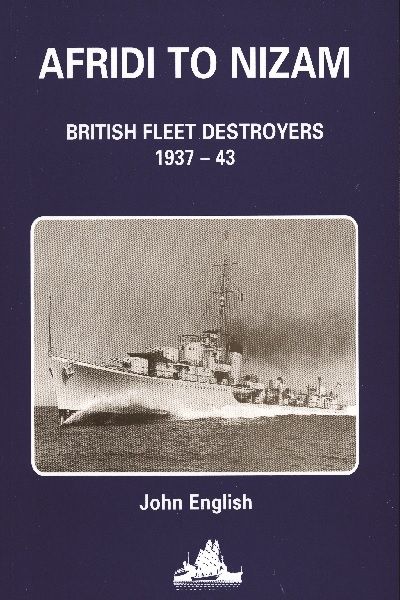This WSS warship monographs deals with the 67 British Fleet destroyers Tribal, J, K, L, M and N class destroyers built during 1937 – 43. These 67 ships represented a new era in British destroyer development. Their predecessors, the A to Is, were linear developments of the highly successful V/Ws of 1917 and by the time the I class entered service in 1937 they were already obsolete. The Tribals created a sensation when they entered service because of their size and heavy gun armament while the J/K/Ns were an attempt to produce a cheaper destroyer with a heavier torpedo armament and the much larger L and Ms were a belated attempt to match the much larger French destroyers. All these ships were heavily engaged during the Second World War and not unsurprisingly suffered heavy losses not least because of their woefully inadequate anti-aircraft armament. Their limited endurance was another failing of all British destroyers. The destroyers that form the subject of this book were however able to survive severe damage but, nonetheless, three quarters of those in RN service were lost: they were in the forefront of the fighting during 1939-42 and the survivors were still on front line duties in the Mediterranean and Far East in 1945. More significantly, the J’s hull and machinery formed the basis of over a hundred standard fleet destroyers commissioned between 1942-46.While the majority of these ships served in the Royal Navy, eight Tribals were built for the Royal Canadian Navy, three Tribals were built for the Royal Australian Navy while one M and one N class were Polish-manned, four N class were RAN manned and two N class were transferred to the Royal Netherlands Navy. Of these, only the RCN and RAN Tribals and four M class transferred to Turkey in the mid/late 1950s saw extended post war service. “AFRIDI to NIZAM” contains design histories and in-service modifications of all six classes as well as in-service histories of each destroyer.
ISBN: 0905617950
Format: Paperback
Author(s): John English
First Publishment Date: 20 September 2001




